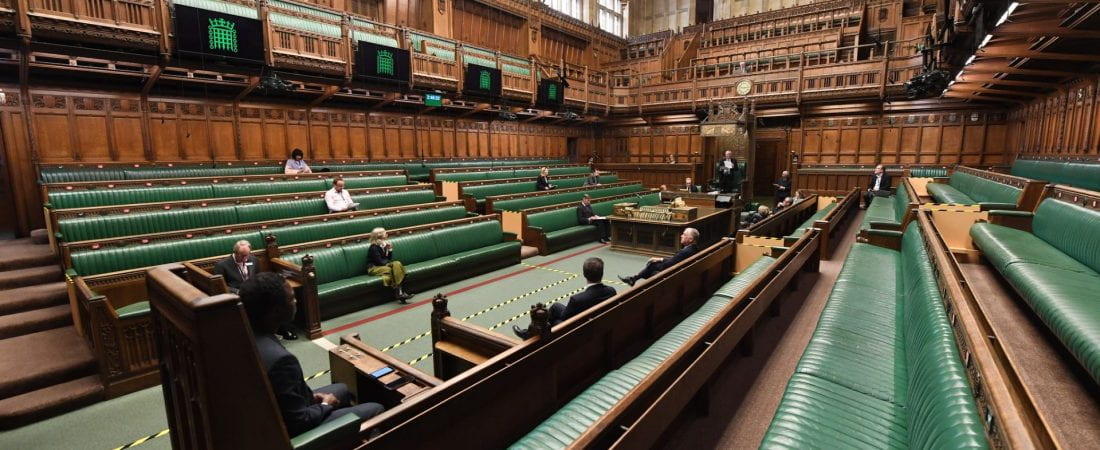Petitions Systems: Enhancing Representative Democracy

For centuries the public have raised grievances by submitting paper petitions to the House of Commons. In the late twentieth century use of the petition system declined, and in 2011 the Government introduced a new e-petitions system, allowing the public to launch and sign petitions online. While the new e-petitions system was immediately popular with the public, in practice it promised more than it could deliver, offering petitioners little or no real participation, empowerment, or prospect of bringing about change.
Dr Catherine Bochel, from the Lincoln Parliamentary Research Centre at the University of Lincoln, highlighted the flaws in the Government’s e-petition system, noting how it raised the expectations of petitioners through a statement on the website: ‘e-petitions is an easy way for you to influence government policy in the UK’ (HM Government, 2011). The reality was that for most participants the system afforded them the opportunity to air their views, but with little or no ‘real’ participation or empowerment. It therefore did not fulfil the main stated purpose of the system, might lead to petitioners feeling that their participation is not valued, and risked creating disillusionment among those who used it, potentially undermining not only the individual system but wider perceptions of the political system.
In a major research project Dr Bochel interviewed petitioners, committee clerks and members of elected bodies in the Westminster Parliament, the devolved legislatures and local government from 2009 – 2019. She explored the extent to which petitions enable different degrees of participation and whilst identifying significant challenges to the effective operation of petitions systems, concluded that such systems have the potential to act as a significant input to representative democracy.
Building on this research Dr Bochel developed a conceptual framework, using the concept of ‘Procedural Justice’ and identified four key features of a positive petitions system:
- having a mechanism such as a Petitions Committee to consider petitions;
- that actions on petitions should not be confined to those that reach particular signature thresholds, but should include a wider range of more flexible responses;
- the opportunity for petitioners to engage with the political system and to perhaps learn more about how it works;
- the integration of the petitions system into the broader system of the elected body or government.
This research informed Dr Bochel’s recommendations for a new e-petitions system, led by the House of Commons. The new system, incorporating Dr Bochel’s recommendations, was launched in 2015 and has already received nearly 23 million unique signatures—with almost 1 in 3 of the UK population signing an e-petition. But the new e-petitions system means that the relationship between the legislature and the petitioner does not stop when they sign a petition. When a petition receives over 100,000 signatures the new Petitions Committee will consider recommending a Westminster Hall debate on the topic, with 73 e-petitions receiving a Westminster Hall debate (taking up over 127 hours of parliamentary time) during the 2017–19 session. The popularity of these debates with the public shows the high level of engagement with e-petitions: nine of the ten most read debates on Hansard (covering both the main House of Commons chamber and Westminster Hall) in 2019 were debates on subjects about which e-petitions had been submitted, receiving over 535,000 views between them. The Petition Committee are also active in communicating directly with petitioners, sharing updates on parliamentary activity following the e-petition and seeking further information. The influential thinktank, The Institute for Government has noted that, alongside petitions on major news stories such as Brexit, the most popular petitions include lower-profile topics, such as calls for banning fireworks or ‘netting’ of hedgerows to prevent birds from nesting to be made a criminal offence. As a result, the IfG suggests, the “petitions system can put issues onto the parliamentary agenda that may not otherwise have been discussed”.
Find out more
If you’re interested in how the e-petitions system has changed, or want to find out more about why this is important for representative democracy, then find out more at the Lincoln Parliamentary Research Centre – ParliLinc.
You can also click on the link below to discover the person behind the project and take a look at our Lincoln Policy Brief to learn more about the policy impact of Dr Bochel’s research:
